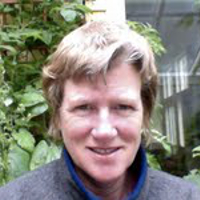A wide variety of blogposts roll across my Google Reader on a daily basis. There have been some great articles on Environmentalism lately, most notably one by Paul Kingsnorth in Orion magazine. The goal here is to add to that discussion by exposing the assumptions that underlie our beliefs about growth and to locate various groups on a continuum of growth beliefs.
Understanding the nature of our energy basis is critical to understanding where we are headed as a civilization. Unless people have received unusual education to break their conditioning to expect and desire growth, most people are so schooled and immersed in the growth story that they do not realize that there may be other possible futures, especially in the US where growth has been so consistent and rapid. In this period of global resource transition, peoples’ beliefs are separating into a growth continuum of three general belief systems or world views that inform our lives and trace a trajectory for our future. I have attempted to categorize some prominent growth-related groups below as examples of each category—with the qualifications that these categorizations are my opinion, and that a person in one group may host a range of beliefs, often contradictory! Some of the categorizations are self evident, with the group’s name as a description of where the group stands on the issue of growth. Other groups such as the Resilience Alliance are more obscure in their stance; perhaps so that they can provide a larger umbrella as a scientific group.
http://www.adbusters.org/spoofads /thought-control
-
We will continue to grow, and we can maintain Business as Usual (BAU) into the foreseeable future because resources are infinite, or because our society has grown successfully for so long, or by leveraging technology. The growth premise of this group is either that market demand creates energy, or that technology is the same as power, or that money drives the economy rather than energy. This group consists of capitalists, economists, and resource extractors as exemplars who seek wealth and economic progress as a primary goal. This group also consists of most consumers, especially in the US where resource consumption is very high. Most consumers rarely think about growth issues; they have been conditioned to consider growth as a positive, natural and enduring part of reality. Perhaps some modern environmentalists who believe in sustainable development also reside here, as Kloor suggests, especially those who are pro-growth, pro-tech, pro-city, and pro-nuclear. Kathy McMahon further subdivides this category in a humorous post describing Panglossian Disorder.
- We must stop growing, but we can keep what we’ve got now

http://www.upcolorado.com/book/A_Prosperous _Way_Down_Paper (Odum & Odum, 2001, p. 78)
by making some Green changes in how we live by leveraging renewable energy using technology. The fundamental energetic premise here is that alternative fuel sources such as nuclear, wind and solar can replace fossil fuels. Another perspective of those in this category is a view of the pulsing cycle from a smaller scale of time that suggests that systems can be frozen at the climax phase of pulsing. Many in this group believe that there is room for both social justice and environmental justice. Steady Staters, Zero growth advocates, environmentalists, sustainability enthusiasts, and single-issue advocates such as climate change proponents reside here. The Resilience Alliance, with its emphasis on “retaining the same controls and function” in reaction to systemic change, is probably primarily in this category?
-
Our economies will contract to match declines in resources, and we must adapt proactively if that decline is to be orderly. This group generally believes that the current economic/political system will need to be reorganized more locally in reaction to resource decline. The main premise for descent is an energetic systems perspective, including the concept of net energy/emergy. This category holds the belief that we will not be able to provide technological solutions for continued exponential growth or even for a steady state when resources are declining. Descent, Research & Degrowth, Permaculture, Transition, and the Prosperous Way Down groups have this world view. Perspectives on economic collapse vary within groups.
- There may even be a fourth, smaller, more extreme category, of those who believe that we should bring the current industrial economic extremes to a slower pace or a halt by actively slowing the flow of fossil fuels. Very few people fall into this category—I am one of them. Some in this small group worry about the environmental base for our diverse planet, and others take the position that a system in extreme overshoot is more likely to crash precipitously. Systems modeling shows us that the further our exponential growth carries us into overshoot, the more likely a complete or fast collapse becomes.
Nuclear Energy Institute Infographic–Nuclear Optimism regarding clean green energy?
Pulsing Succession (Odum, 2007, p. 56) http://cup.columbia.edu/book/978-0-231-12886-5/environment-power-and-society-for-the-twentyfirst-century
Where do you fit on the continuum above, and why do you hold these beliefs? The world views that we hold frame our beliefs and theories about how the world works. Our assumptions dictate who we can talk to, who we go silent with, and who we end up talking past. For example, when I hear an announcement for a talk with the word climate change in the title, I make an assumption that the content of the talk will be narrowly focused on market or geoengineering solutions within the framework of BAU, without an energetic systems framework. HT Odum was called an environmentalist occasionally, but he was wont to bristle up when that happened, suggesting that environmentalists were people who thought they could keep their entitled lifestyle while walling off a token, symbolic piece of nature as wilderness in recompense. People are slowly diffusing down the continuum, with more environmentalists such as Kingsnorth shifting away from green environmentalism towards descent/degrowth perspectives, and perhaps more consumers are becoming environmentalists, as they become disenchanted with the current economic/political state. I see that transition as a hopeful, positive shift in public opinion. Rogers (1962) suggests that diffusion of innovation requires that the new ideas be better than the old in terms of relative advantage, compatibility with an individual’s life, simplicity, trialability, and observability. As the economy worsens, politics becomes more extreme, and the corporation becomes more powerful, simple, frugal, cooperative living may become more advantageous, especially when the simple living behaviors are role modeled by peers. The Occupy Innovators are probably the first significantly large group of visible role models for this change for a complete shift in world views and behaviors.
It is important to question the assumptions that we make in order to identify with a certain world view. The answers to some of the questions below define what you believe, what you know, and where you stand on these issues of growth, energy, the environment, and the economy.
- What is your belief about growth based on—which group do you fall into? Can we grow forever? If not, what is our limit? How long can we sustain our exponential rate of growth? Can our population be sustained or continue to grow, or must it contract?
- If you belong ideologically to a group, does your group have distinct, stated beliefs about growth and energy, or are the beliefs implied?
- Do you believe that resources are limited, and what is the role of technology in possible limits? Is technology the same as power? Is technology positive, or negative, or does technology have mixed benefits and problems? Are resources always used to the fullest extent possible? Can existing systems operate without continuous flow of energy?
- If there is a universal tendency to entropy in the universe (the 2nd thermodynamic law), then why did our complex civilization occur? Is there a scientific principle that explains this emergence or self-organization?
- In order to fit within the natural hierarchy, natural systems are required to recycle everything and eventually stop growing—why is man different? What is the nature of feedback over time—what limits the growth of expanding systems?
- What has allowed us to build densely urban metro areas in the last century? Is the footprint of a resident of Tokyo larger or smaller than a footprint of someone on a rural farm in Ohio, and why? Do cities need Nature in order to exist? If so, how much Nature do they need?
- Can we understand and fix global problems with specialized science by breaking things down through analysis and then piecing them back together with policies?
- Is there always somewhere where we can dispense with pollution—is the solution to pollution dilution? Will there always be a “there” to throw things away to? What about materials—when they are used what happens to them as they are used in a system, over time?
- What is the relationship between efficiency and power? Is the effort to obtain different resources such as energy the same? How does that effort change over time?
- How does energy differ at lower scales (photosynthesis?) versus higher, more complex scales (computers?) in terms of quality and quantity? How do different forms of energy interact? What is embodied in your laptop, and how do you value it? Is there any energy in a Tweet? How much energy is in an electric car, and how do you measure it?
- What is complexity and how do we define it? What are the drivers of complexity, and how do we maintain it?
- Money values our work and our wealth; if you woke up tomorrow and your paper money was worthless, would you value your work, your resources, and your life any differently? Mother Nature doesn’t deal in currencies; does she get a say in how we run things, and if so, how?
http://www.emergysystems.org/emergy.php Odum, 1998
Are there any systems that do not pulse? How do pulses at different scales of time, territory, and transformity affect growth patterns? Does our economic system pulse, and if so, how? This question is probably the most important question, and it deserves more discussion later. While we view civilization as consistently growing over time, if we expand the view through our macroscope to the larger scale, there have actually been many, many civilizations over time, rising and falling as they grow and descend over time. Is there a difference between the organization and behavior of individuals and communities in different phases of growth and contraction?
Mather Poster (anonymous, 1924)
No matter what your beliefs on these issues are, it is important to ask yourself these questions regarding energy in our growth-focused economy. How we view energy and growth is either a non-issue, or it is a political campaign issue, or it is the fundamental question for our time, depending on our perspectives, our understanding of systems, and the assumptions we make. These three or four potential futures are radically different from each other; the outcome will probably be dictated by thermodynamic laws. Understanding the pulsing, hierarchical nature of systems can help us to parse our future. And if you don’t like the category you’re in, perhaps it’s time to move your thumbtack further down the spectrum on the bulletin board of growth beliefs?






